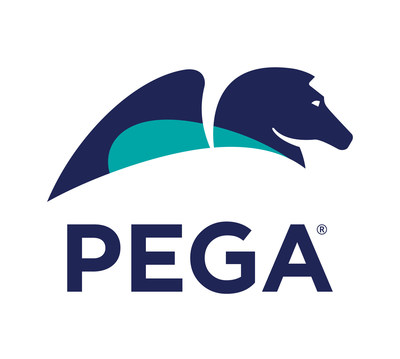Businesses Move to Combat Waning Customer Loyalty with Pre-Emptive Service Technology, Says Pega Study
On October 3, 2022, Pegasystems (NASDAQ: PEGA) released a global study indicating a growing necessity for pre-emptive customer service technology to enhance customer experience. The survey revealed that 65% of business leaders aim to anticipate customer needs proactively within five years, addressing the challenges posed by increasingly digital-savvy customers. The report highlighted that 80% prioritize technology deployment to improve efficiency, while 55% recognize insufficient investment in new technologies as a major hurdle. The study emphasizes the urgency for organizations to adapt to shifting customer expectations or risk losing their clientele.
- 65% of respondents aim to anticipate customer needs proactively in the next five years.
- 80% of leaders prioritize deploying customer service technology to improve efficiency.
- AI budgets for customer service are growing, with 58% allocating funds for its digital transformation.
- 55% lack investment in new technologies to meet customer expectations.
- Customer loyalty is expected to decline, with 55% fearing loss due to poor customer experience.
Organizations realize they must invest in transformational solutions to optimize the customer experience or risk losing out to competitors
CAMBRIDGE, Mass., Oct. 3, 2022 /PRNewswire/ -- Business leaders are doubling down on pre-emptive customer service technology to help meet the demands of less loyal and more digital savvy customers, according to new research by Pegasystems Inc. (NASDAQ: PEGA), the low-code platform provider that builds agility into the world's leading organizations. The global study, conducted by research firm iResearch, surveyed leaders from 11 countries in the Americas, Europe, and Asia-Pacific for their thoughts on the evolution of customer service over the next five years.
The survey found that pre-emptive customer service technology is becoming a must-have for businesses who are committed to meeting the needs of their customers. Nearly two thirds (
The findings underline a shift towards customer-centric technology as the solution to the challenges posed by more demanding, digital-savvy customers. Eighty percent of respondents said deploying customer service technology to improve efficiency was one of their most important priorities over the next five years. Meanwhile, more than half (
Perhaps the biggest driver of this race towards more pre-emptive, customer-centric technologies over the coming years is that customer loyalty is expected to fall sharply as customers continue to evolve. More than half (
The study also identified several changes to the way customer service will look over the next five years. These include:
- The customer of the future is changing: Customers are increasingly becoming digital-first, and more than half (
54% ) of respondents said that customers will expect consistent service across all channels over the next five years. In short, customers will expect faster, more personalized, and proactive service from the companies they do business with – and businesses will need to react accordingly. - AI could save the day: Advanced software such as artificial intelligence could help organizations tackle some of the biggest barriers to improving their customer service: for example,
63% cited being able to prioritize customer-centric experiences as their biggest challenge, while more than half (60% ) admitted that they struggled to demonstrate empathy and humanity to customers. Today, AI and machine learning is the leading technology in terms of budget allocation for customer service digital transformation projects (58% selected it as the primary target for their spending) – and we could see the fruits of that investment in the coming years. - Contact centers will get a major tech upgrade: Customer service organizations are increasingly under pressure to reduce contact center costs in the next five years. That means the contact center of the future will require fewer agents. However, live agents aren't totally going away. Two thirds (
66% ) of respondents identified using dynamic, AI-powered technologies that help agents make decisions quickly and work more efficiently as a priority.
"The entire customer service landscape is changing," said James Dodkins, customer service evangelist, Pega. "Where once it might have been enough to react to customers and their concerns, tomorrow's successful businesses know that they will need to pre-empt them and take action before they become an issue."
"Organizations know that unless they adapt accordingly, they will be left behind by competitors who are willing to give customers what they need, when they need it and, increasingly, before they even know they need it. That's the brave new world of customer service, and the willingness to rapidly invest and adopt technologies like artificial intelligence, intelligent automation, real-time decisioning, and predictive analytics could be the difference between success and failure for organizations in the years to come."
Download Pega's 'The future of customer service: How AI and automation will radically change service delivery' report at: https://www.pega.com/future-of-customer-service
To understand how customer service is changing in response to new technology and emerging customer expectations, Pega surveyed 750 senior vice-presidents, vice-presidents, senior directors, directors, senior managers, and managers across key sectors, including financial services, life sciences, healthcare, retail insurance, manufacturing, telecoms, and the public sector.
Respondents answered 23 multiple-choice questions, which delved into how customer service is expected to change in the next three to five years. Pega also conducted qualitative interviews with customer service executives in healthcare, life sciences, and retail insurance.
Pega provides a powerful low-code platform that builds agility into the world's leading organizations so they can adapt to change. Clients use our AI-powered decisioning and workflow automation to solve their most pressing business challenges – from personalizing engagement to automating service to streamlining operations. Since 1983, we've built our scalable and flexible architecture to help enterprises meet today's customer demands while continuously transforming for tomorrow. For more information on Pegasystems (NASDAQ: PEGA), visit www.pega.com
Press Contact:
Jon Brigden
Pegasystems
jon.brigden@pega.com
Twitter: @pega
All trademarks are the property of their respective owners.
![]() View original content to download multimedia:https://www.prnewswire.com/news-releases/businesses-move-to-combat-waning-customer-loyalty-with-pre-emptive-service-technology-says-pega-study-301638848.html
View original content to download multimedia:https://www.prnewswire.com/news-releases/businesses-move-to-combat-waning-customer-loyalty-with-pre-emptive-service-technology-says-pega-study-301638848.html
SOURCE Pegasystems Inc.
FAQ
What findings were highlighted in the Pegasystems study on pre-emptive customer service?
How does the Pegasystems study address customer loyalty?
What is the significance of AI in the future of customer service according to Pegasystems?








